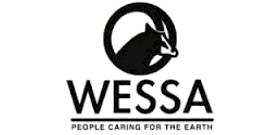 South Africa’s Blue Flag Beaches and Green Coast Sites Set New Standards for Coastal Tourism
South Africa’s Blue Flag Beaches and Green Coast Sites Set New Standards for Coastal Tourism
The start of the 2025/26 season marks a major milestone for South Africa’s coastline, as WESSA (the Wildlife and Environment Society of South Africa) celebrates a quarter-century of the Blue Flag programme in the country. The latest announcement, made on 31 October 2025, brings news that will resonate strongly with the African tourism sector: this year, 50 beaches have achieved full Blue Flag status, while an additional 20 sites are currently operating as pilot beaches, working towards the coveted international recognition. Alongside these, several marinas and tourism boats have joined a select group that meets strict environmental and safety criteria, reinforcing South Africa’s growing reputation for sustainable coastal tourism.
The Blue Flag is more than just a symbol; it’s a guarantee that beaches meet rigorous international standards for water quality, safety, environmental management, and education. For those planning summer getaways, Blue Flag beaches offer assurance of clean water, professional lifeguarding, excellent facilities, and a commitment to environmental stewardship. The presence of the Blue Flag also signals that local municipalities and tourism partners are investing in both visitor experience and long-term ecological health—an approach that aligns with global tourism trends and the rising preference for responsible travel.
This season’s full-status Blue Flag beaches span the country’s most beloved coastal destinations. In the City of Cape Town, visitors can enjoy the iconic shores of Bikini, Camps Bay, Clifton 4th, Fish Hoek, Llandudno, Melkbosstrand, Muizenberg, and Silwerstroomstrand. The Western Cape dominates the list, with municipalities like Overstrand, Cape Agulhas, Hessequa, Mossel Bay, Bitou, and George showcasing pristine sites such as Grotto, Struisbaai, Stilbaai-Wes, Hartenbos, Robberg V, and Wilderness. Along the Eastern Cape, Nelson Mandela Bay and Kouga offer celebrated beaches including Hobie, Humewood, Kings, Dolphin Main, and Cape St Francis Bay.
KZN’s coastline also shines, with KwaDukuza, Ray Nkonyeni, and Umdoni highlighting premier family getaways like Blythedale, Willard Beach, Hibberdene, Ramsgate, Trafalgar, and Pennington. Each beach on the list is recognized for upholding high standards, making them ideal for everything from eco-friendly holidays and family outings to photography tours focused on well-managed, scenic shorelines.
While full-status beaches set the bar, the 20 pilot Blue Flag beaches are hot on their heels, already meeting much of the international criteria and striving for full recognition. These include standout sites such as Castle Beach, Santos, Leentjiesklip, Bluewater Bay, Port Edward, Rocky Bay, and McDougalls Bay in the Northern Cape. Their progress signals expanding opportunities for destination managers, municipalities, and investors to further raise the profile of South Africa’s lesser-known coastal gems.
South Africa’s leadership in coastal tourism extends out to sea, as evidenced by the seven tourism boats awarded Full Blue Flag status for 2025/26. Operated by some of the country’s top marine ecotourism companies—including Marine Dynamics Shark & Whale Tours and White Shark Diving Company in Gansbaai, and Offshore Adventures in Plettenberg Bay—these vessels provide access to the rich marine life that defines the South African coast. Tours on the Slashfin, Dreamcatcher, Whale Whisperer, White Shark, Shark Bait, Robberg Express, and Oceanic give guests the chance to encounter whales, dolphins, and great white sharks, all while adhering to the highest standards of sustainability, safety, and education. This is a key differentiator in the competitive marine tourism market and a model for responsible wildlife experiences that African operators can look to emulate.
On land, the marina sector is keeping pace, with five marinas achieving or retaining Full Blue Flag status. Royal Alfred Marina (Eastern Cape), Thesen Harbour Town Marina, Thesen Islands Homeowners Marina, V & A Waterfront Marina, and Club Mykonos Marina (all Western Cape) have demonstrated excellence in water quality, environmental management, safety, and community engagement. These marinas provide sustainable, world-class infrastructure for local and international boaters, setting new benchmarks for the continent’s coastal infrastructure development. Their achievements reflect a broader trend of integrating eco-friendly design and community stewardship into tourism planning, strengthening the long-term appeal of waterfront destinations.
Running parallel to the Blue Flag initiative, WESSA’s Green Coast network is gaining momentum, offering a uniquely South African approach to balancing biodiversity conservation with nature-based tourism. This season, the network more than doubled in size, with 15 certified Green Coast sites recognized for their commitment to environmental stewardship and community engagement. Standout sites include the Blaauwberg Nature Reserve in Cape Town, Nature’s Valley in Bitou, Walker Bay managed by CapeNature, Swartvlei Beach in Knysna, and several stretches along the Eastern Cape and KwaZulu-Natal. These destinations offer transformative experiences rooted in conservation and local partnership—an increasingly attractive proposition for travelers seeking authentic, sustainable adventures.
For Africa’s travel industry professionals, the expansion of Blue Flag and Green Coast certifications offers more than just a marketing advantage. It underscores the business case for sustainable tourism, showing that environmental responsibility and economic opportunity are not mutually exclusive. As global travelers become more discerning—demanding cleaner beaches, safer environments, and genuine commitment to conservation—African coastal destinations that meet these expectations are poised to capture new market segments and foster long-term success.
Looking ahead, these developments point to a future where South Africa’s coastline is a blueprint for the continent: a place where environmental quality, community engagement, and visitor satisfaction go hand in hand. For tourism operators, hotel managers, DMCs, and policymakers, now is the time to invest in raising standards, building partnerships, and highlighting the unique value of Africa’s coastal assets. The Blue Flag and Green Coast movements are not just accolades—they are powerful drivers for elevating the region’s global standing and ensuring the sustainability of its most treasured natural resources.
